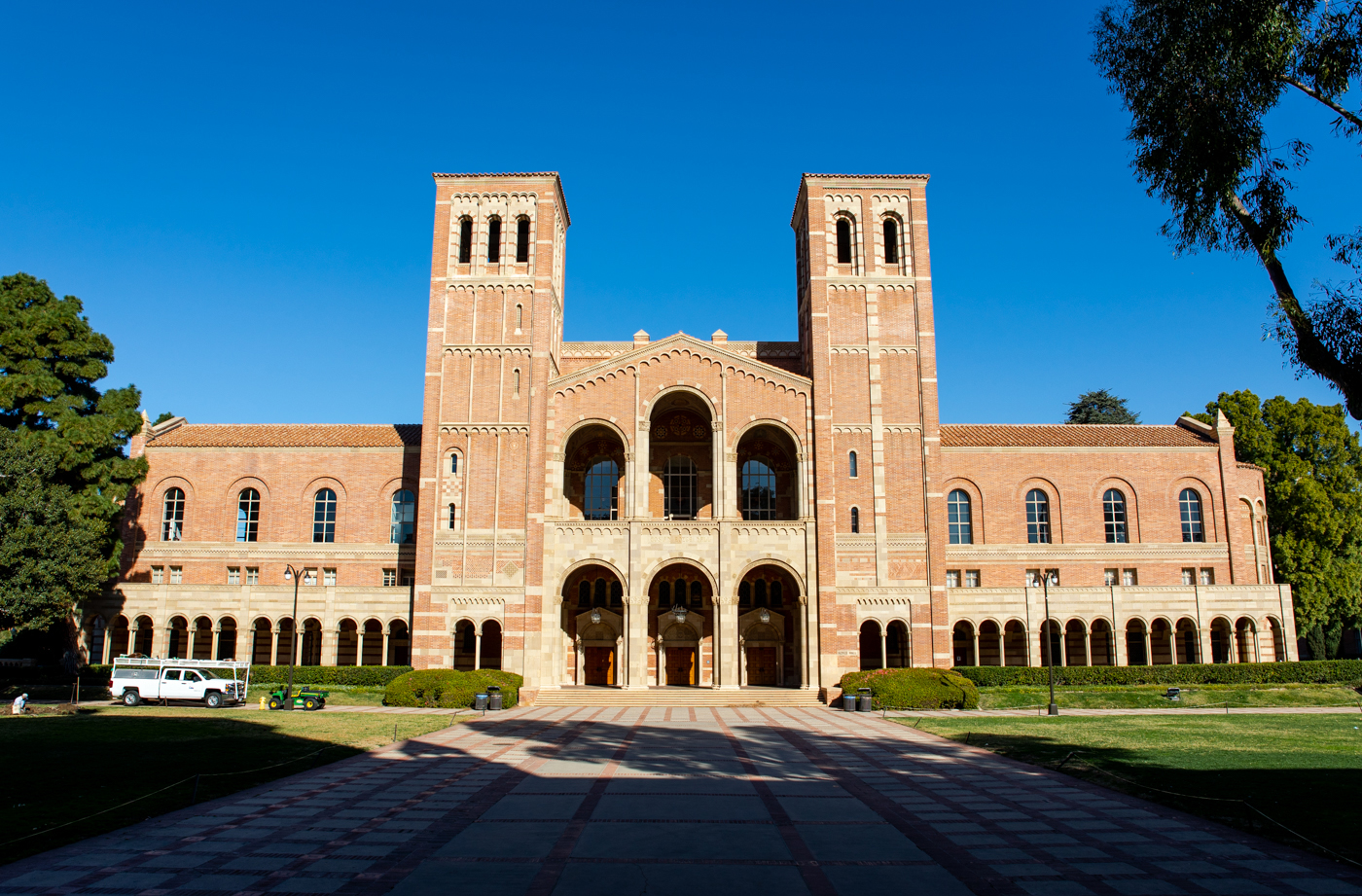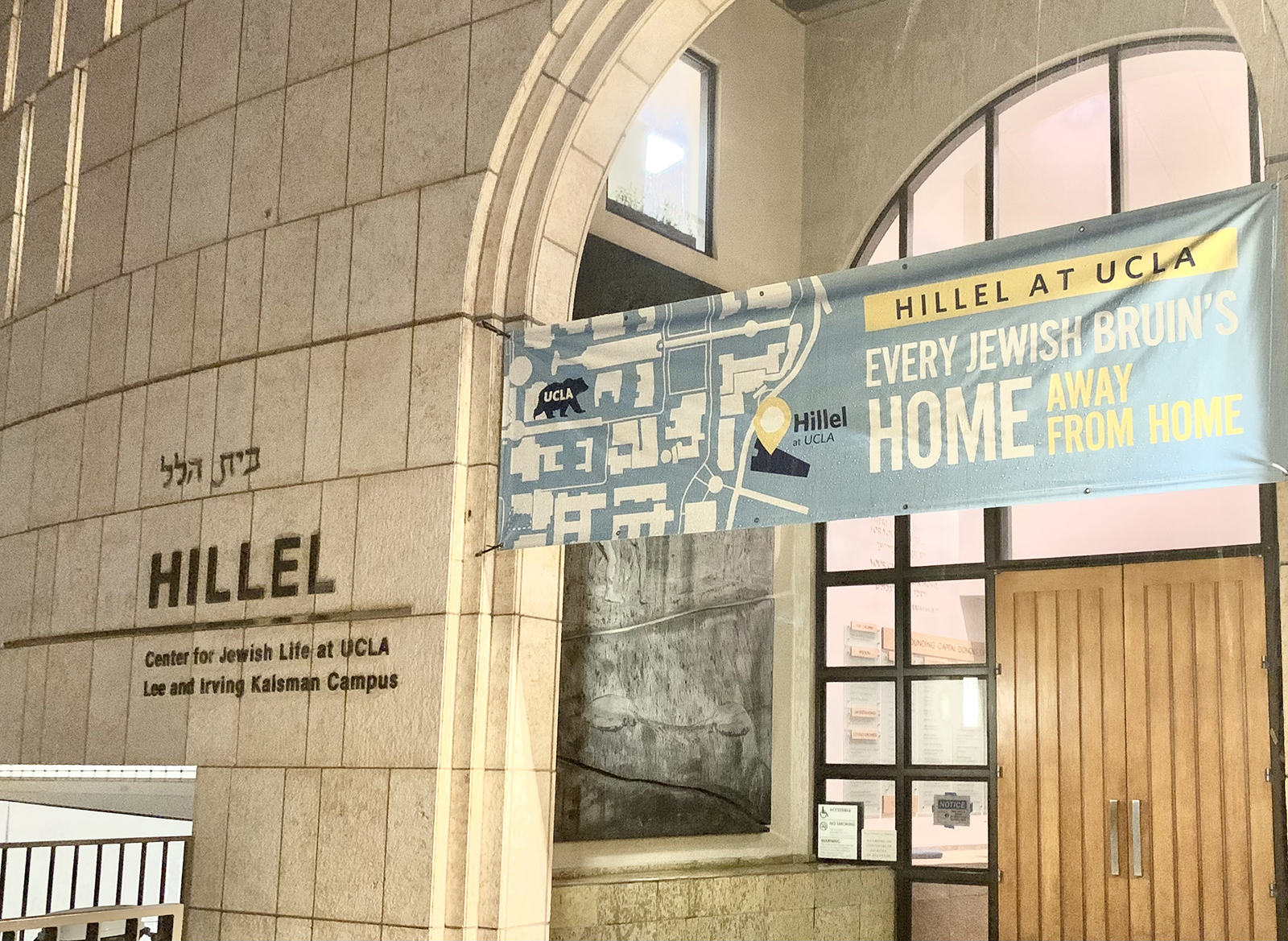Community members address national increase in hate crimes

Royce Hall is pictured. As the number of reported hate crimes increases around the country, the UCLA Initiative to Study Hate has been researching the many facets of hate. (Daily Bruin file photo)
By Paula Zepeda
May 21, 2023 10:41 p.m.
UCLA community members discussed an FBI report that found that hate crimes in the United States increased by nearly 12% between 2020 and 2021.
Hate crimes are defined as criminal incidents against an individual where the offender is partially or totally motivated by racial, ethnic, gender, disability, sexual orientation or other biases unique to the victim. From 2020 to 2021, the number of reported hate crimes in the U.S. increased from 8,120 to 9,065, according to the report released in March.
Taylor Aquino, a sociology doctoral student, said she believes economic issues tend to be a root cause of hate crimes. She added that when there is an economic downturn or jobs are scarce, individuals exclude those who they perceive to be outsiders, such as immigrants and Asian individuals, on whom they may also misplace blame.
“Entire groups can be homogenized and blamed for something and then be subjected to violence,” Aquino said. “I think that because of that, the UCLA community and national community should be very worried about how this can happen so quickly.”
Research groups at UCLA are investigating the concept and the presence of hate. Maia Ferdman, project manager of the Initiative to Study Hate at UCLA, said the initiative strives to examine hate as a social phenomenon rather than isolated incidents.
Aquino said she hopes that people will read the report and acknowledge that there’s still a lot of work to do.
“There is a huge gap in what we understand about the dynamics of how hate is formed, about even what hate is to begin with,” Ferdman said.
Ferdman added that there is currently a significant lack of agreement on the definition of hatred. Specifically, there is no consensus for where the boundary is between the social and emotional aspects of hate, as the concept of hate can be classified as both an individual feeling or a social structure, she added.
Some university organizations are attempting to prevent the trend of hatred from appearing on campus. Daniel Fessler, a professor of anthropology and director of the UCLA Bedari Kindness Institute, said everyone has an inherent ability to be hateful as well as kind. The Bedari Kindness Institute sponsors research on topics encouraging kindness and looking at the obstacles preventing it.
Fessler said humans are cooperative and social toward people they see as similar to themselves physically, while they are hostile toward those who they see as different.
“The antidote has to lie in providing people with information to show that the ideas of profound difference between groups is factually incorrect,” Fessler said.
Ferdman said she believes it is beneficial to make resources available to combat hateful instances at the university. Oftentimes, nonprofit and government interventions do not involve the same depth of research that university resources can provide, she added.
Aquino said she hopes public officials will notice this trend of violence and proceed more carefully with rhetoric that may fuel tensions between different groups.
“I would hope that politicians and leaders would take what happened over the past several years … and be careful about how they speak not only about racial and ethnic groups in the States, but also be careful about whatever they’re saying on a national platform,” Aquino said. “It can obviously stoke racial tensions.”





